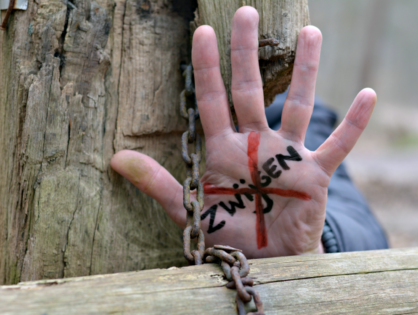Identity search is important in processing sexual abuse
What part of your identity is yours, and what part of the person who sexually abused you? It is important that social professionals focus on this, says trauma sex therapist and experience expert Rogier van Luijk.
Sexual violence has an enormous impact on young people because their identity is still developing.
At the Youth and Sexual Violence Congress, in the Netherlands 13 february 2020 Rogier van Luijk gives the lecture 'Sexual Abuse, and afterwards? Here he discusses the role of the social professional with various cases. In contrast to the traditional models, which are often aimed at accepting sexual abuse, Van Luijk is a great advocate of the model developed by Peter John Schouten: 'He indicates that the perpetrator is internalized in the personality of the victim. And that you shouldn't accept this. It is important to be able to separate what is your own and what comes from the perpetrator'.
Stay up to date with the latest developments on sexual violence with the free online newsletter of Zorg+Welzijn. Subscribe here >>
Victims of sexual violence can develop patterns caused by the abuse. For example, addiction, hanging out with the wrong friends, being very active sexually or being humble. Van Luijk: 'For example, there are female and male prostitutes who say that they love their work: they love sex, and they get paid for it. If, as a social worker, you want to get to the heart of the matter, you shouldn't ask directly about the sexual abuse or the link with their work. Because then they usually clap closed by feelings of shame or loyalty to the perpetrator. But if you ask: since when do you like this work so much? And if it has to do with something you've been through, it can sink in and slowly get to the heart of the matter. In the end you talk about not accepting that the victim follows the role model she has learned from the perpetrator, that is the breaking point. Because in the end, no one does that job for fun.
Trauma Sexual Therapist Rogier van Luijk is one of the speakers at the Zorg+Welzijn congress Youth and Sexual Violence on 13 February 2020.
During the lecture at the congress, Van Luijk will provide social workers with useful tools, based on various cases, to start the conversation and identify signs of sexual abuse. Van Luijk: 'Perpetrators of sexual violence are usually acquaintances, such as family members or acquaintances. This is very complicated for a young person - whose identity is in the process of development - because you often have a dependent role in relation to the perpetrator, and the perpetrator is not only bad. The sooner you can get started as a social worker, the better. The younger you are, the better you can get rid of your traumas and recover'.



